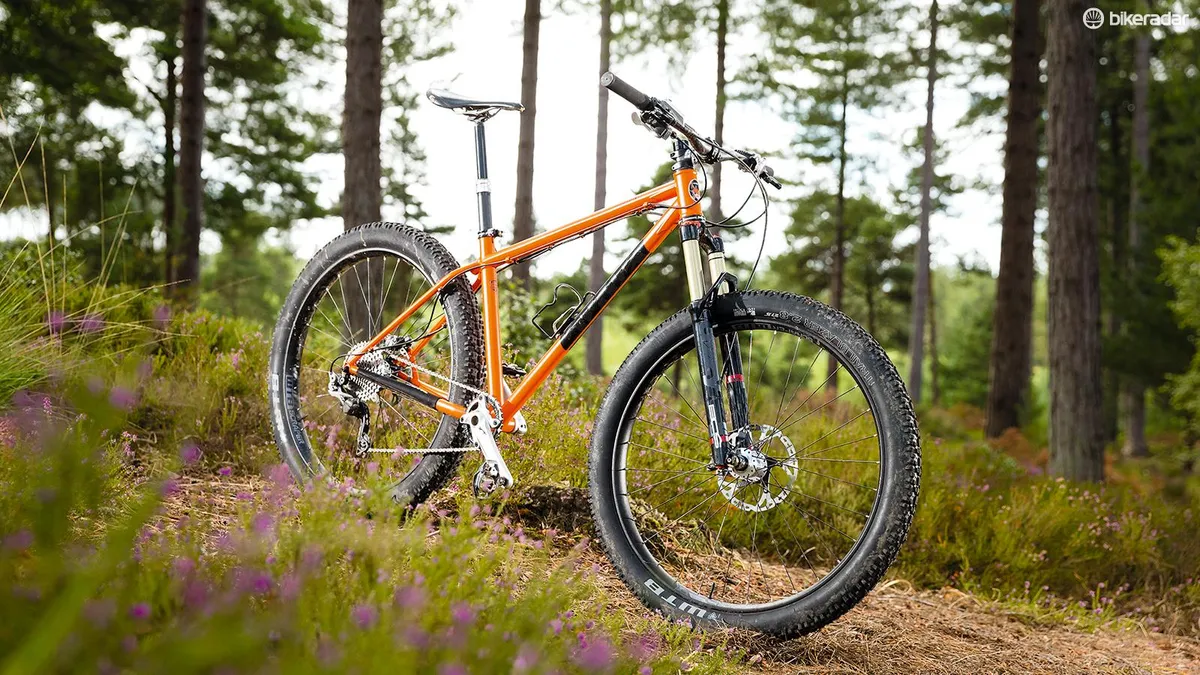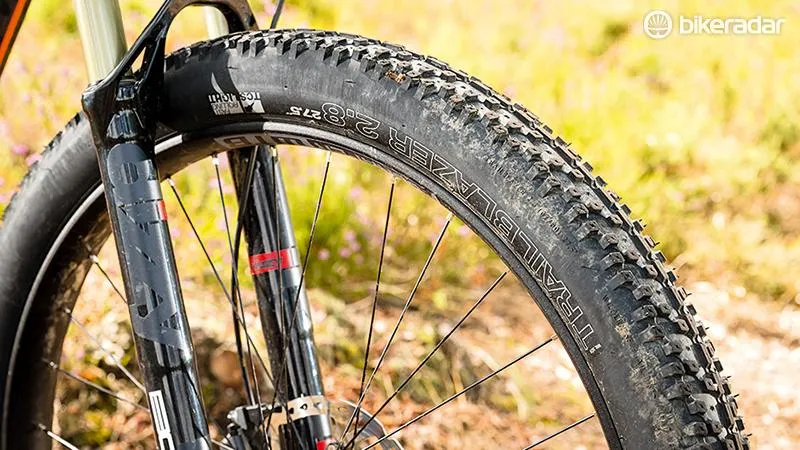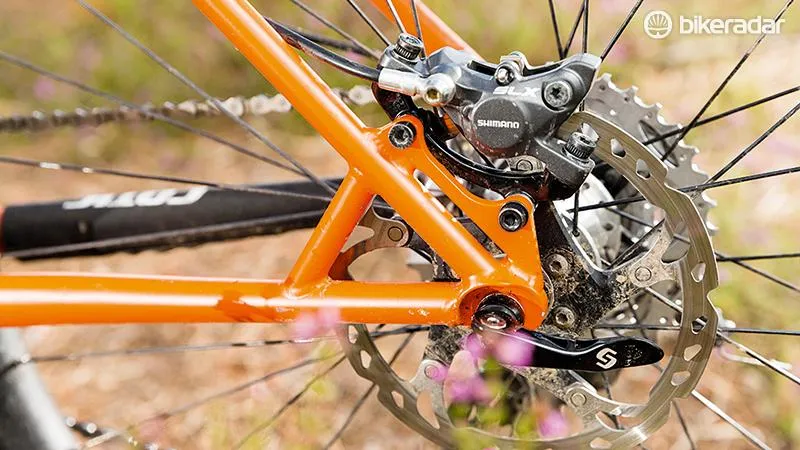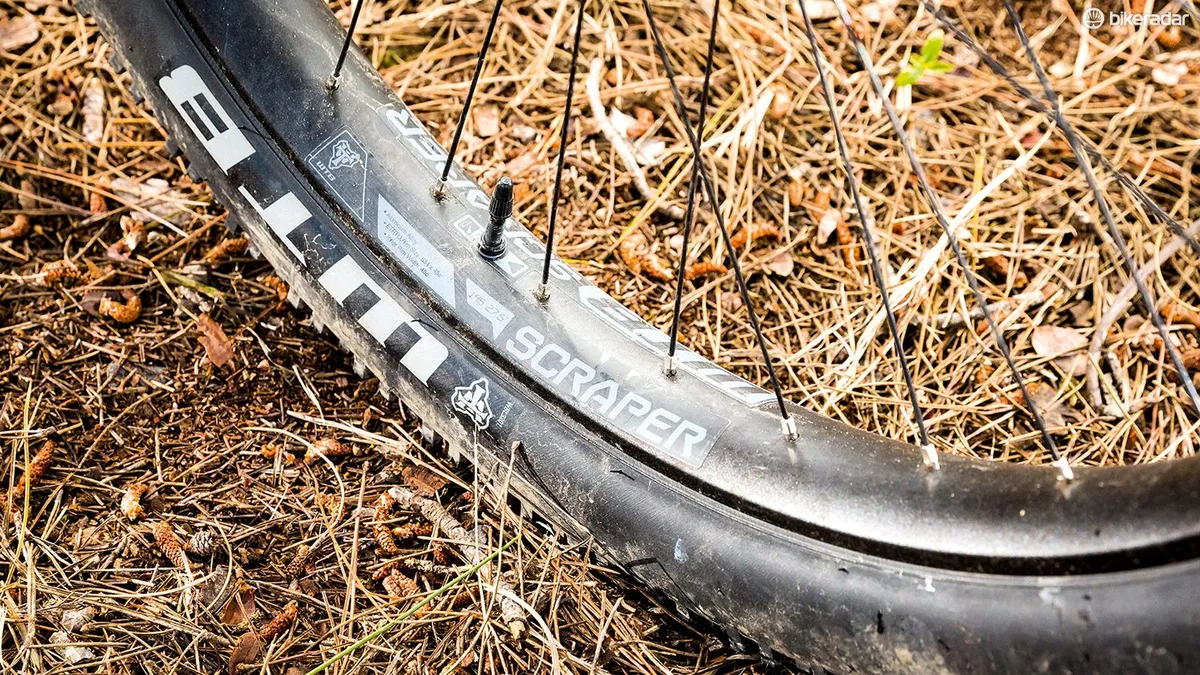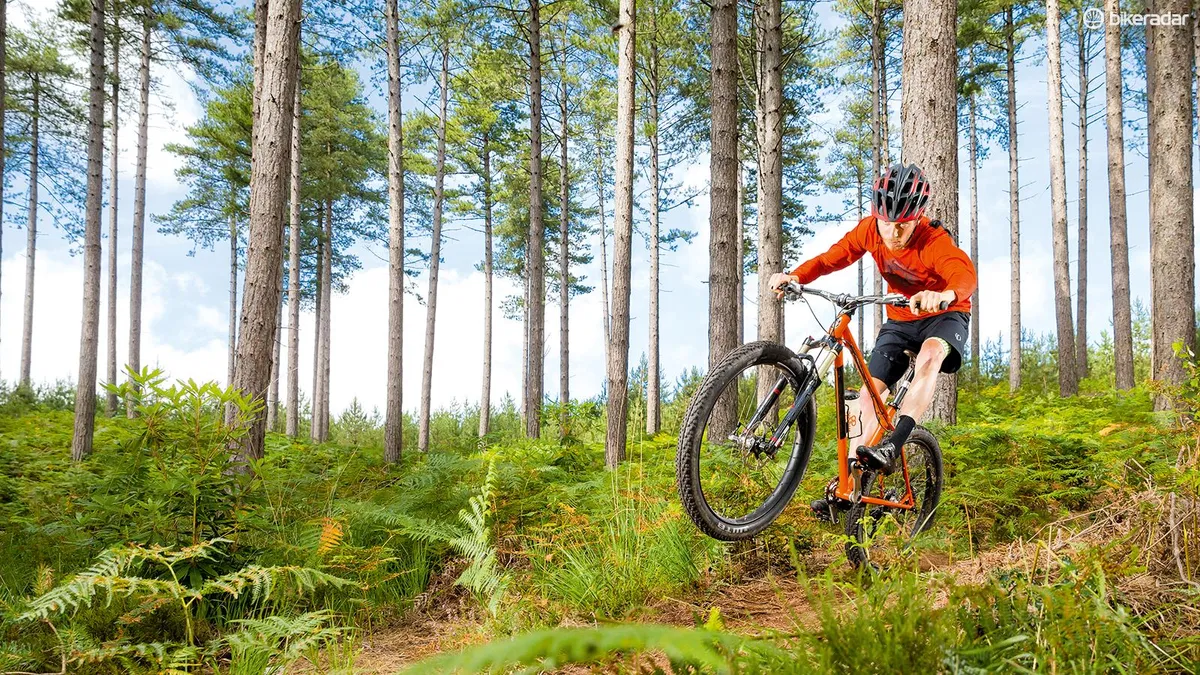A rolling chassis of frame, fork and wheels is a great way to start off a custom build. The basics are sorted, leaving you to fine tune all the personal stuff such as bars, saddle and grips.
Unable to load Media
Unable to load Media
Unable to load Media
That’s what Cotic is offering with the updated Solaris – formerly its 29er trail bike. While the old Solaris will accommodate 27.5+ wheels, the new geometry and a touch more clearance at the back on this updated model will take both sizes with ease.
Frame and equipment: an excellent (not so) blank canvas
Swapping between 29in and 27.5+ wheels obviously changes the character of the bike, but Cotic has worked on the Solaris geometry to bring it more up to date.
It sits firmly in the trail category now, with a roomy 631mm effective top tube on a large frame, a 68-degree head angle and 120mm 29er forks.
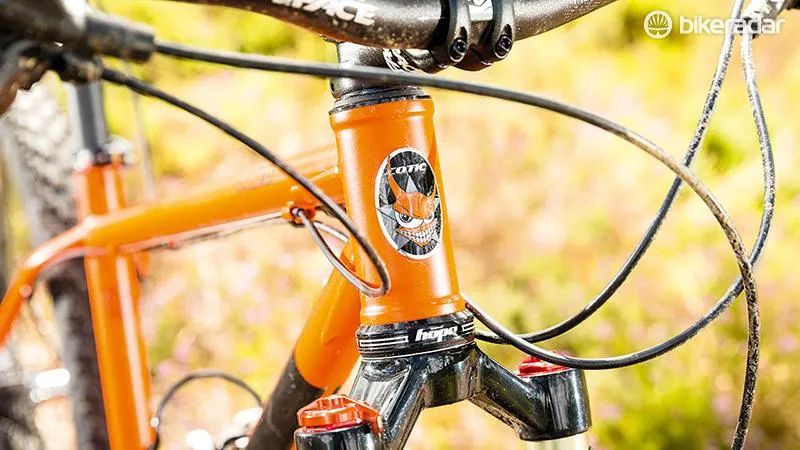
Cotic is one of the UK’s best known home-grown bike companies
While the finishing touches are added by the buyer, Cotic’s rolling chassis takes the big decisions out of your hands. The BOS Dizzy fork is an XC model, but we’ve found in the past but the damping is exceptional despite the slightly flexy chassis. It’s one of our favourite forks, and helps keep weight to 12.5kg on our build.
Hope hubs are solid affairs and they’re laced into WTB Scraper i35 rims as standard. We’re more used to seeing 40-50mm internal width rims on plus sized bikes (as specced on ours), but Cotic isn’t alone in speccing slightly narrower rims – Specialized runs 30mm internal, for example. With 2.8in rubber, having those wider rims helps with that tyre roll.
WTB’s TrailBlazers are one of the few plus-sized tyres widely available at the moment. The near continual central tread rolls well, while the rest of the tread offers decent levels of grip in most conditions.
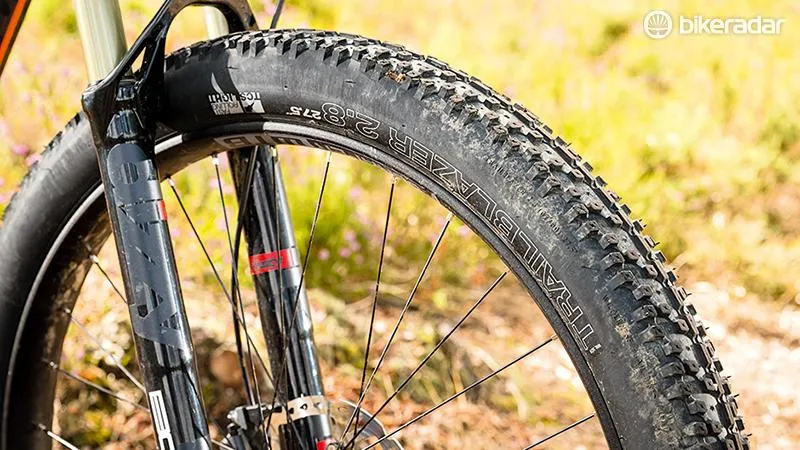
WTB is one of the first big players in the plus-sized tyre game
We’d rather the shoulder knobs were placed a little more prominently round the carcass though, as the 2.8in version is very square tyre, and can feel a little nervous when being ridden hard on the shoulder.
RaceFace Respond bars are plugged in up front, with 785mm or 740mm versions available, and an upgrade to a Joystick Analogue 800mm carbon bar also available. A 60mm RaceFace Ride stem finishes it off.
You can also get the chassis with a cheaper X Fusion Trace RL2 fork, and there are various 29er wheeled options too. Our only real gripe is the lack of internal routing for a dropper post. External cable routing is great, making maintenance a lot easier, but the majority of higher end droppers are now plumbed internally, so it feels like a slight oversight for the Solaris to lack this.
Ride and handling: plus-sized fun levels, whichever wheels are fitted
Minor niggles aside, this is a remarkably fun bike to ride. Compliance from the tyres, as well as their grip means you can push it harder than you generally could with 29in wheels, and the geometry all comes together to give great confidence on more technical terrain.
That’s helped by the 2.8in TrailBlazers. The larger volume and width helps the bike make mincemeat of rougher terrain, most noticeably at the back where no longer are you at risk of losing fillings. Instead, it tempts you to tackle rough, rocky and rooty sections faster than you would otherwise.
There is a trade-off though. Push the tyres too hard into corners or mess up a hip jump and the tyre roll that you’d get with normal tyres is accentuated, leading to a sketchy exit line.

Whether kitted with 27.5+ or 29in wheels, the Solaris is a grin-inducing ride
Setting them up is also trickier than normal tyres, as the working pressure window of the tyres is vastly reduced, to only one or two PSI. Get it wrong and they either wallow or ping around too much.
We prefer the 3in version of the Trail Blazer, which we feel has a better profile. That said, we’ve found them a great way to liven up rides, and we consistently came back grinning.
Sticking regular 29er wheels into the Solaris reminded us of the stark difference between the wheel types. The updated geometry still gives a great feeling bike and the quality of the BOS Dizzy fork’s damping is even more apparent.
With light but strong 29er wheels the Solaris is fast, keen to get moving and a bit sprightlier when the trail heads upwards.
Swapping wheels around is a simple job – although neither frame nor fork come with the now common Boost widened axle systems, instead using 15x100mm at the front and 135mm QR at the back. That’s not necessarily a bad thing, as it improves compatibility.
